We’re excited to introduce you to the always interesting and insightful Sam Blakeslee. We hope you’ll enjoy our conversation with Sam below.
Sam, thanks for joining us, excited to have you contributing your stories and insights. How did you learn to do what you do? Knowing what you know now, what could you have done to speed up your learning process? What skills do you think were most essential? What obstacles stood in the way of learning more?
Like all musicians and artists, the only way to improve your skill set is through individual practice, and pairing that study to a creative community of artists. In the early days of an artist’s development, it is easy to be constantly second guessing the ways in which you are working on your craft. It certainly takes time to find your own process through such a vast field. For me however, that youthful need to “figure it out” quickly resulted in a lack of patience to really master each thing I was working on. To speed up the learning process, it seems antithetical to spend more time, working more intensely on fewer concepts. But as I look back at my development, and in college especially, if I were more patient, and set more tangible long-term goals, as opposed to short-term goals to provide instant gratification, I think it would have sped up my learning process overall. A great deal of my practice now has not been in learning new concepts, but rather filling in the gaps that I skipped over in my younger years. I think that process of refinement as you get older is universal and expected throughout any creative process. However, the more you can dedicate to the true mastery of the fundamentals while you are young, I believe will help set you up for greater success in the future.
As far as the skills I think were most essential, I think a natural curiosity is paramount. There has to be something that is drawing you into the work, and the adage of “the more you know, the more you realize you don’t know,” not only has to be realized, but embraced fully. It can be extremely overwhelming when you start to have your creative world expanded rapidly, but approaching the music humbly and with the disposition of a being a lifelong student, it makes it easier to slowly synthesize all of that incoming information.
As both a young person, and slightly not-so-young person, the obstacles that impede me from learning more all come from within. Whenever I lose a state of being humble, or feel some need to present myself as a “serious creative voice,” then it immediately shuts me off from being able to absorb new information, or process and improve the information I already possess in a different way. While it is somewhat cliche, the phrase “it’s not the destination that matters, it’s the journey” is a highly appropriate one to continue coming back to your creative process with and open mind and heart.
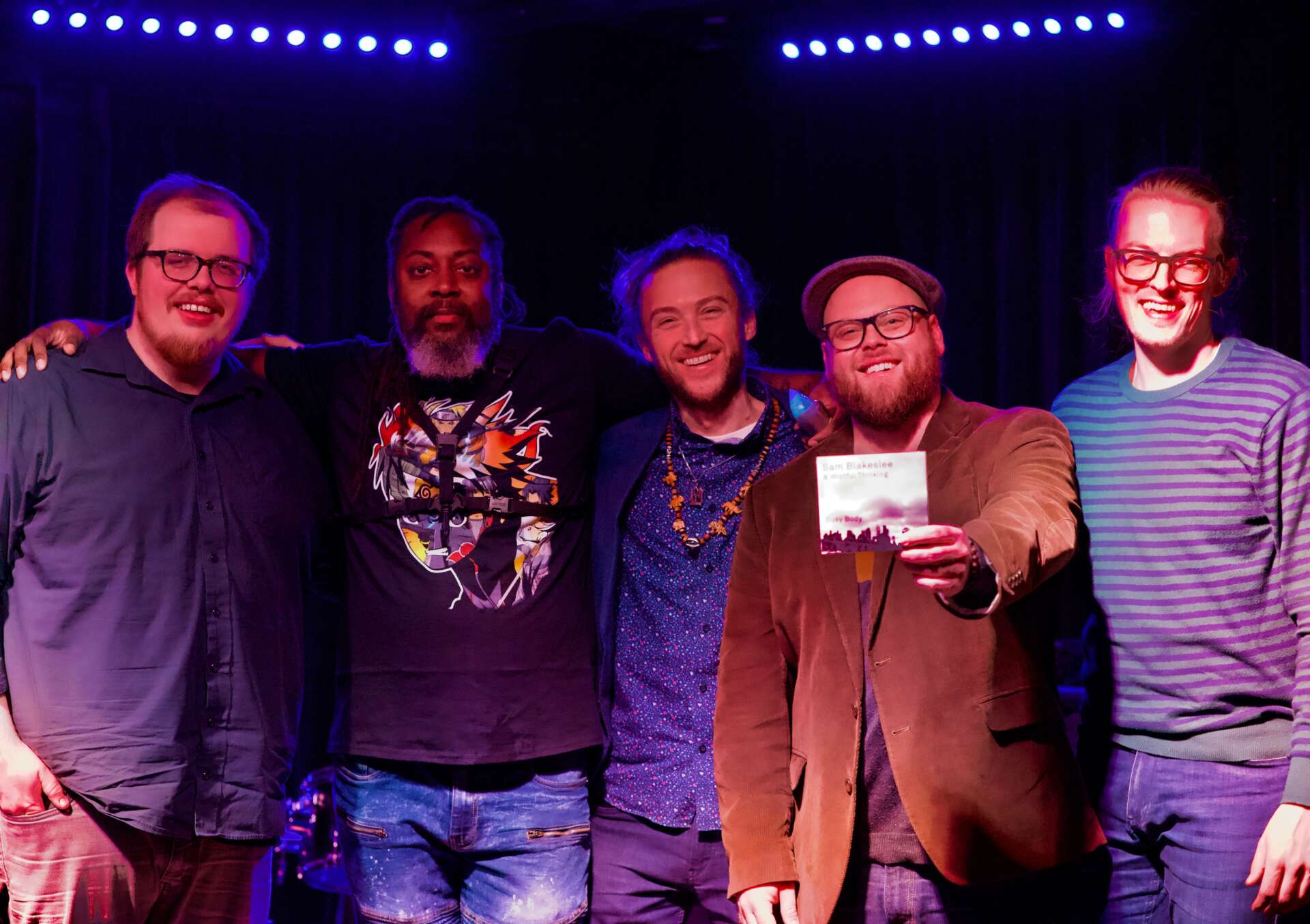
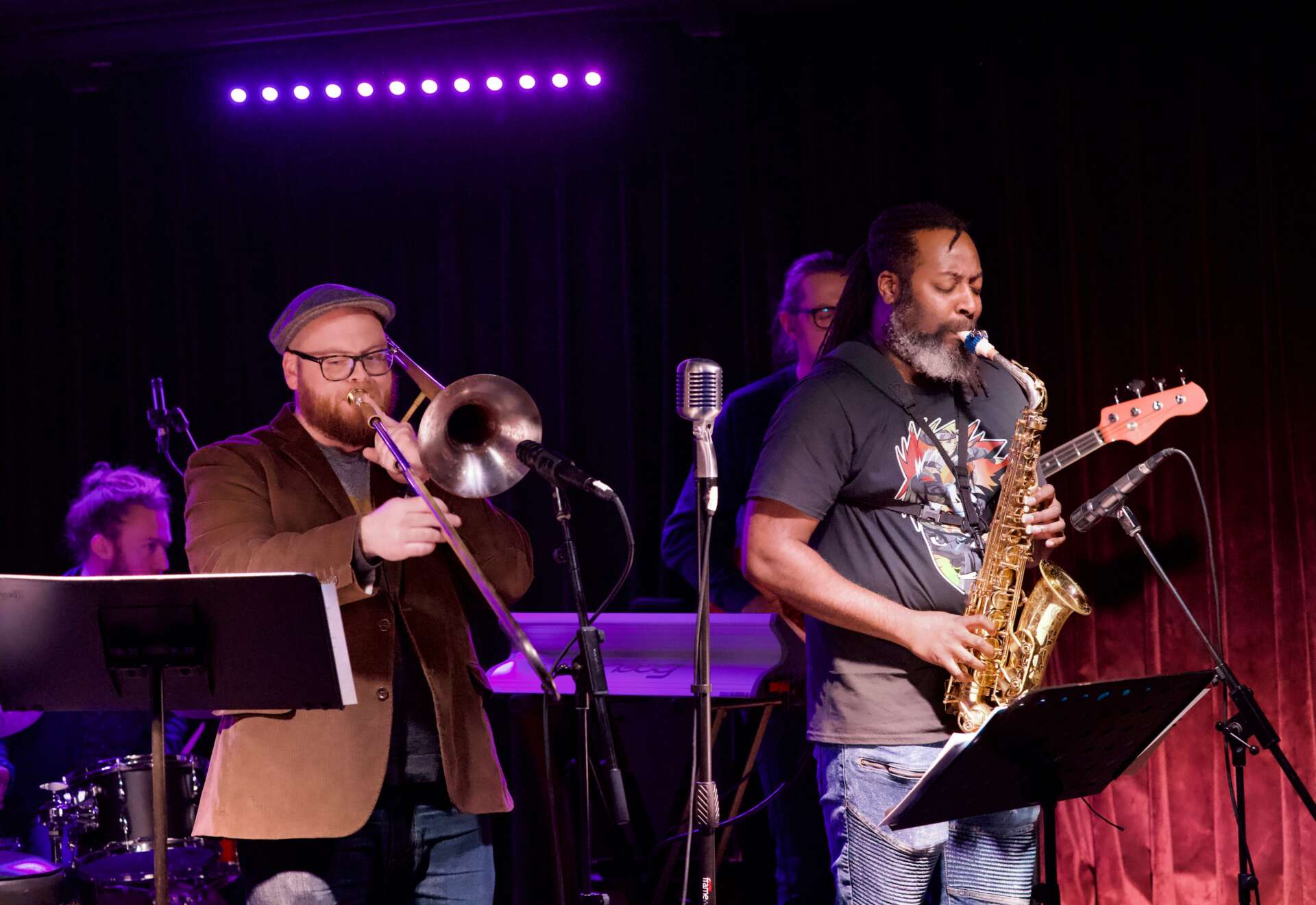
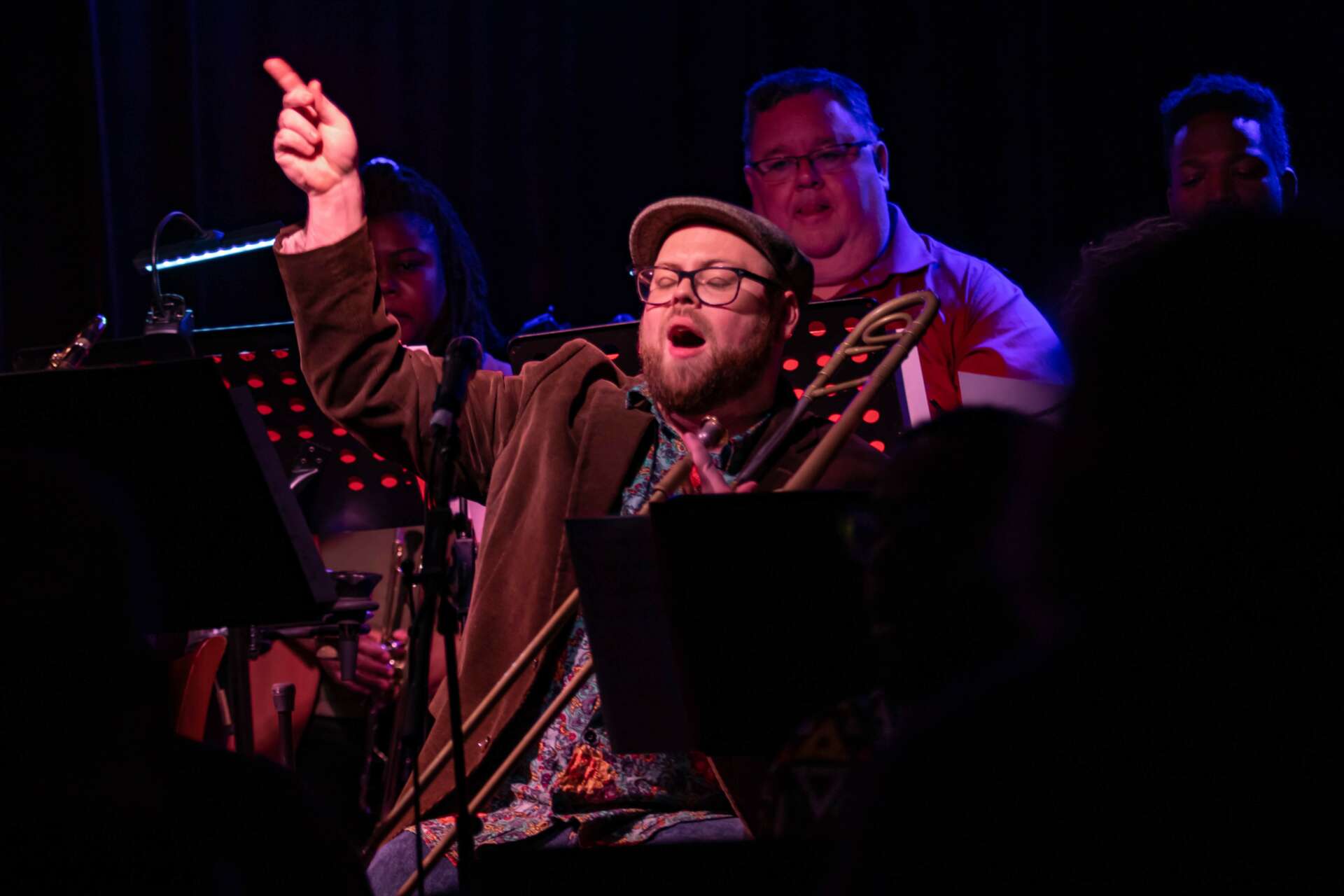
Awesome – so before we get into the rest of our questions, can you briefly introduce yourself to our readers.
Growing up in Columbus, OH, I always had an inclination towards playing music, but only decided about half way through my senior year of high school that I wanted to pursue it professionally. I was initially drawn into the blues music of Jimi Hendrix, B.B. King, and Stevie Ray Vaughn as a very self-taught guitarist, then later I became enamored with the music of Duke Ellington and Count Basie as a trombonist, and from that point forward focused my energies on trombone in the jazz idiom. I spent 10 years living and studying in Northeast Ohio cities Cleveland, Akron, and Youngstown, which served as a wonderful and creative incubator before moving to New York City in 2017.
Since, then I have been working as a freelance trombonist and composer where I perform with a myriad of projects across NYC. For the last 3 years, I have been composing for and performing with two projects of mine; Wistful Thinking, which is an eclectic chamber group with a growing and divergent discography, as well as the Sam Blakeslee Large Group, which is an 18-piece jazz orchestra. Wistful Thinking has formed more into an electric-focused reconciliation of my early influence of psychedelic rock figures like Jimi Hendrix, while the Large Group has become more of a foray into the world of blending the traditional big band jazz idiom with more contemporary classical aesthetics.
I essentially have two sides to my creative self, one being a sideman, and the other being a bandleader. As a sideman, I have affixed myself mainly to the contemporary big band scene in NYC where I’m lucky to be a part of some amazing projects with incredible composers. As opposed to smaller music scenes, there is thankfully a great deal of creative work in NYC for trombonists, and the big band scene has been a great catalyst to be performing new music frequently, both in live performance and studio recording settings.
In addition to writing music for my own ensembles, I also compose frequently for various educational programs, both in making custom arrangements of jazz repertoire for jazz education purposes, but also writing commissions of original music, most recently for Oberlin College and the University of Akron. After mainly focusing on freelancing since 2017, I have recently been more involved in jazz education, where I perform masterclasses/clinics for schools and jazz organizations across the country. This January, I joined the faculty at the University of Hartford – Hartt School of Music, in the Jackie McLean Jazz Institute as Artist Teacher of Trombone, where I teach applied lessons in jazz improvisation.
From a compositional standpoint, I think one of the problems that I can solve for my potential clients is creating custom arrangements suited to not only their instrumentation, but also the skill level of the ensemble. While a lot of jazz education programs pursue a model of a full jazz orchestra (5 saxophones, 4 trumpets, 4 trombones, guitar, piano, bass, and drums), often times depending on the registration of that particular semester, you can have excess of one instrument family and a serious lack of another, which makes playing the traditional jazz repertoire extremely difficult. I have spent a lot of my time studying orchestration (and in particular the sonic weight of instruments within an ensemble), so even if the instrumentation is really lopsided, I can create arrangements that can allow the students to learn how to play in ensemble, but in a way in which their own part makes sense.
Another situation that happens frequently is a program might have enough students to fill one big band with the traditional instrumentation, but not a second, and the former becomes a sort of overflow ensemble with a very unique and difficult set of instruments. Composing for the challenging group of instruments in that type of overflow ensemble has become easier and has actually become a great way for me to continue studying different ways to orchestrate. My most recent endeavor in this type of composing is a commission of a suite of original music for University of Akron, where the instrumentation resembles more a of wind ensemble than jazz orchestra. While it took me some time to find that balance of the different instrument families, I think it will still yield a balanced result that sets the students up for success in their learning, which in my opinion is the most important part of the overall process.
Throughout my musical development, I have tried my best to work and study from a place of openness, where no genres of music are better or worse than another. While at times it has felt like I had spread myself too thin, I’m starting to see the longer game come into focus. At this point, I feel like I have a fair amount of versatility both as a trombonist and a composer. I feel just as comfortable playing Duke Ellington as I do contemporary classical music, and equally comfortable composing bluegrass tunes as writing electronic music. I have been around people that pigeon-holed themselves stylistically from an early age, and I realized that was not the path I wanted to go down. I think this versatility has not only helped me in a pragmatic sense in a gig economy as a freelance trombonist, (where I also perform a great deal of commercial music), but also as an educator, and composer. I can meet students where they are coming from, as opposed to only being able to draw them into my individual approach and concepts. As a composer, I think it has allowed me to reach a more diverse audience than the standard acoustic jazz format. From a personal standpoint, that openness has helped me feel more fresh in my own creative endeavors.
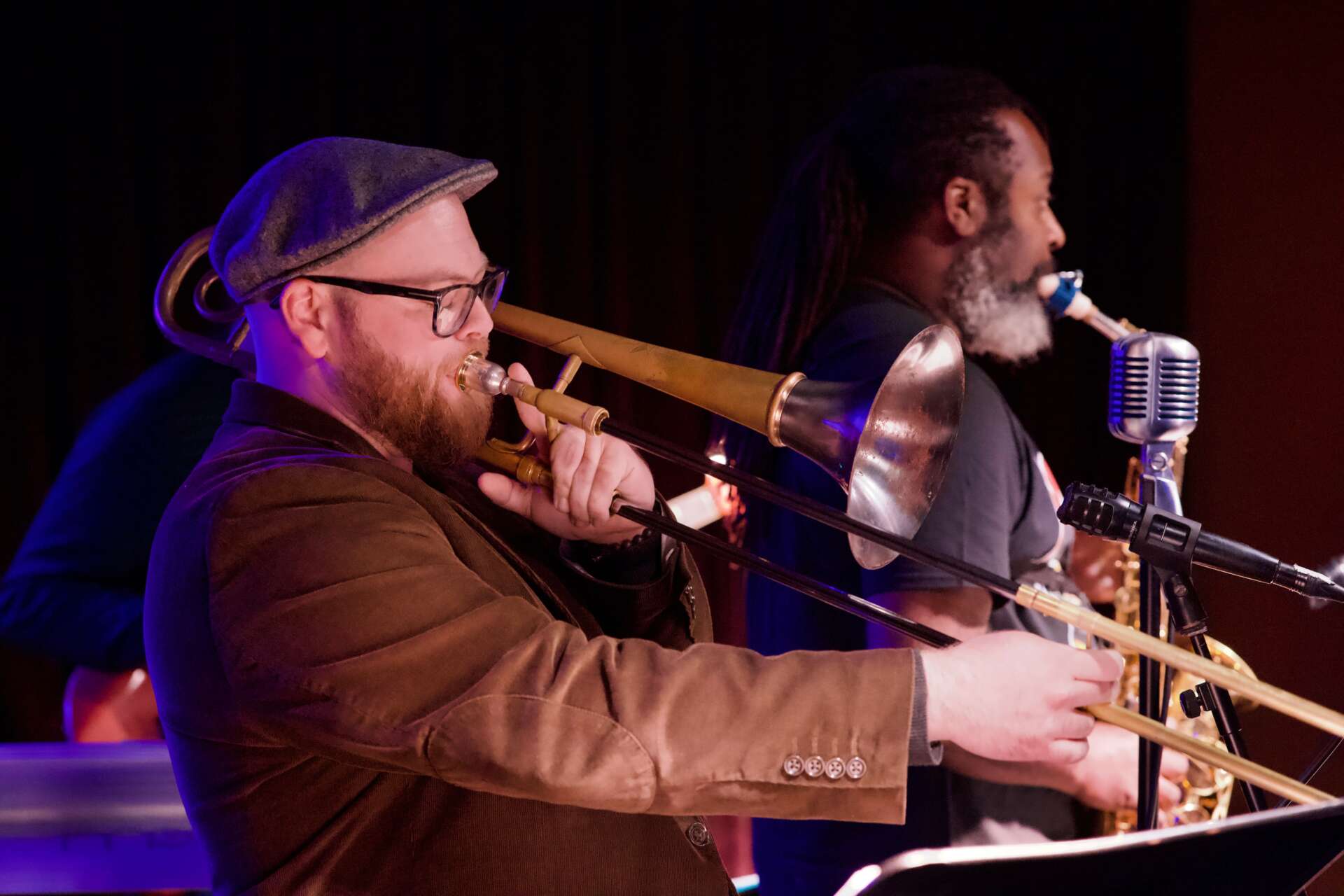
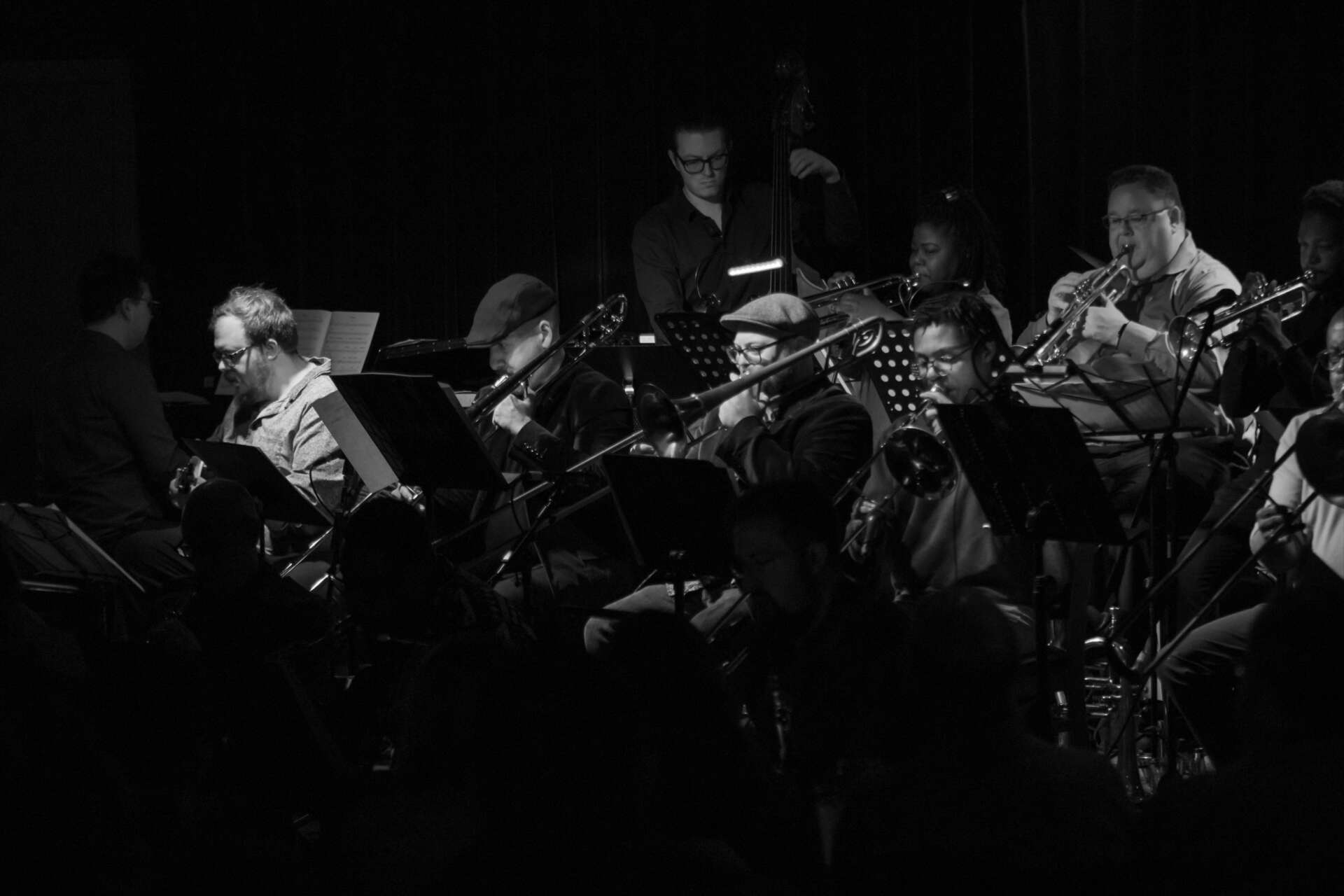
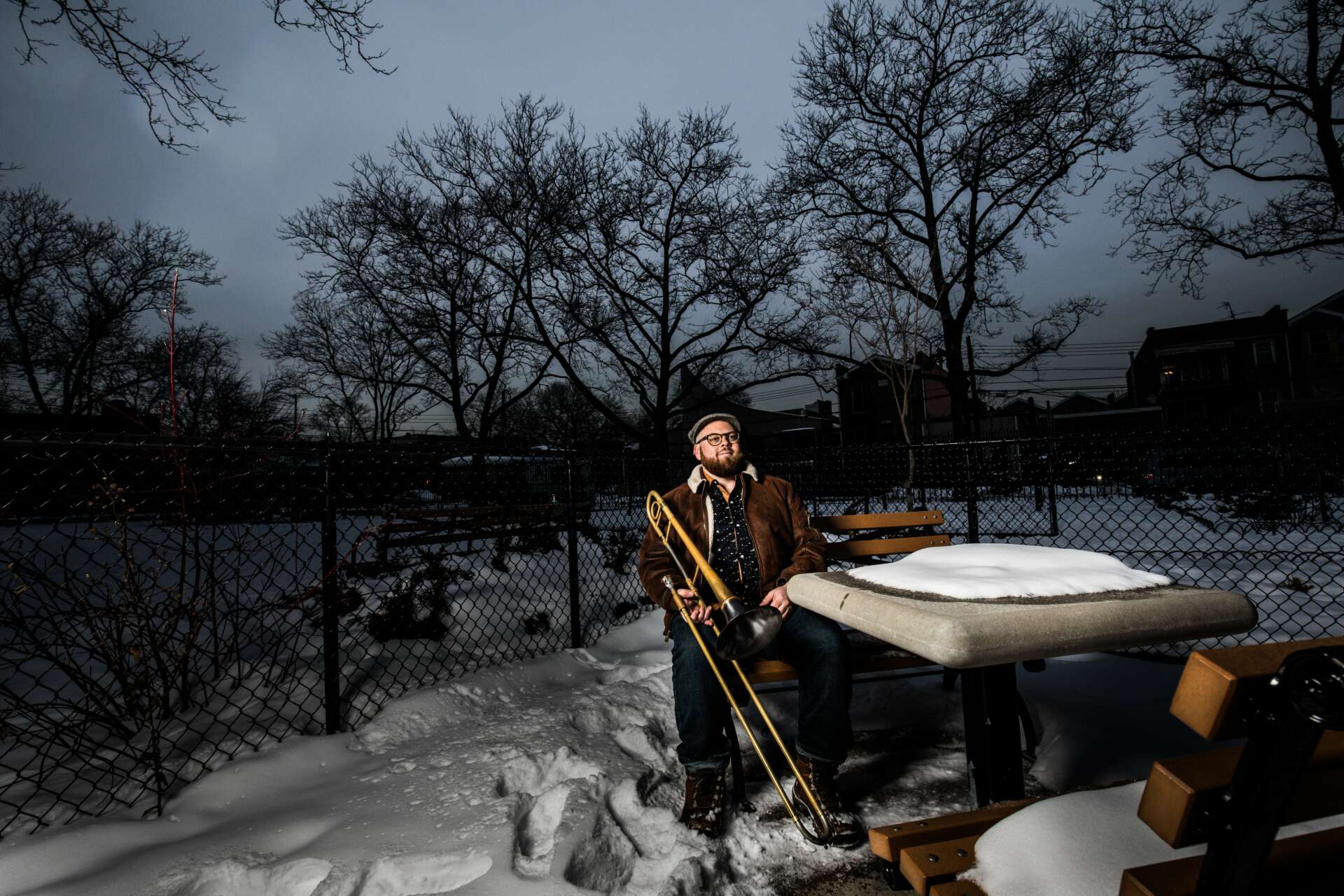
Is there mission driving your creative journey?
I think over time that goal or mission has changed. When you are younger, it is extremely easy to place your goals through only external means, such as, “by the time I’m 25, I will have played with this person, or at this place.” While having those goals of working your way up the ladder when you are younger is helpful, and will certainly make you put in the work, I found as I got older that all it really does is set expectations for yourself that you really have no control over whatsoever. In the last few years, I have been trying to redirect my goals to be more internally focused, and on things that I can truly steer the direction of. So much of the music industry is left up to chance, and there will be many venues I’d like to perform at, and people that I’d like to perform with, that I will most likely never have the opportunity to. However, that realization has allowed me to focus more on what opportunities and collaborations that I am currently involved in, and it has created a much deeper appreciation and gratitude for those moments. I have come to realize that it may be in different places, or with different people that I was hoping to play music with, but the quality and frequency of the music and musicians that I get to create with is completely aligned to those younger aspirations.
I also have found that a lot of those goals or decisions from my younger days were also based of off other peoples trajectory in their unique time/space locus, and not at all my own. I’ve had students say to me, “oh man, you’re getting to play with this person?!” When in my mind, I of course respect their musicianship, but in many cases they are also great friends, so it doesn’t have that unique idolatry that is so prevalent at the beginning of our creative journey. Of course I still struggle with it, but as I’ve started to turn away from those arbitrary checkpoints in my development, I’m more focused on and able to live a much more creative life. I feel lucky to be getting to the age (33), where the noise is becoming less and I’m more happy that I get to live a life as a creative musician in the first place. Anything career-building that happens is a bonus, not a requirement. If I’m coming from that place, my creative journey as a musician and human feels much more honest and fulfilling overall. It has turned it into a game rather than a task, and that has allowed me to work harder and with infinitely more enjoyment.
What’s a lesson you had to unlearn and what’s the backstory?
I think the main lesson that I’ve had to unlearn is that art of any kind is not something that can be harnessed or coerced. I think it more resembles a sort of cultivation, or similar to a current of a river. There is a certain physicality with music, and especially in brass playing, that can really shift your disposition to art in general away from where the true source material lies. If my creative endeavors feel like I’m taming a wild stallion, it is hard, unenjoyable work. In a similar sentiment to the previous question, when you are trying to control something external, and even if you can control it, it still has a mind of its own. Whereas if you view creativity like a garden that is to be manicured delicately and daily, it makes the slow improvement easier to see and appreciate. Another analogy that is often in the forefront of my mind is that if you view creativity as a current, there will be times when that is a raging whitewater river, and there will be times when it is a trickling stream, but it is a stream nonetheless. These two analogies have helped me see the natural seasons of creativity and how it is fairly altruistic to be creative all the time. I’m more perceptive of when it is starting to feel like I’m taming the wild stallion, and when I’m simply dipping into the current. Thankfully, I’ve also become more perceptive when that feeling of harnessing creativity appears, it’s probably time to take a step back and go do some other things like hiking, going to museums, watching inspiring films, or doing nothing at all.
Contact Info:
- Website: https://www.samblakesleemusic.com/
- Instagram: https://www.instagram.com/sam_blakeslee/
- Facebook: https://www.facebook.com/samblakesleemusic
- Twitter: https://twitter.com/blakesleejazz
- Youtube: https://www.youtube.com/@samblakesleemusic4106/featured
- Other: https://samblakeslee.bandcamp.com/
Image Credits
Photos by Desmond White, Alex Weil, and Matt Rucinski.


